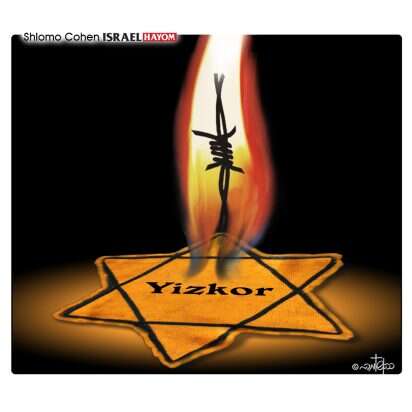A UK-based textbook publisher has paused the distribution of two Middle East high school books after a report that showed that the books - which were filled with anti-Israel bias - had been changed in a "pro-Israel" direction.
Conflict in the Middle East, c1945-1995 and
The Middle East: Conflict, Crisis and Change, 1917-2012, both written by Hilary Brash, were shown to be highly biased against Israel. David Collier
wrote a report on just chapter 1 of the second book showing clear bias, and he mentioned some other examples:
• P. 29 refers to terrorists, or Fedayeen, as freedom fighters “depending on one’s
point of view.” It is internationally accepted that those who randomly target
civilians are terrorists regardless of the cause they are fighting for. Palestinian
terrorists and terror groups – like Hamas – wage such attacks against Israeli
civilians to this day.
• P. 56 has a reference of PFLP as a “guerrilla group”. In reality, PFLP is an
internationally proscribed terror organisation, having been designated as such by
the United States, Japan, Canada, Australia, and the European Union. It does not
recognise Israel and openly calls for its annihilation and is well known for pioneering armed aircraft-hijackings in the late 1960s (one of its most infamous
militants being Leila Khaled).
• P. 78 refers to the Coastal Road Massacre and says that Israeli civilians “died”
during the shootout. In reality, the Israelis kidnapped by the Palestinian terrorists
were murdered by them and not caught in the crossfire, as the book aims to
portray; 13 of the victims were children. Furthermore, the passage does not once
refer to the Palestinians as terrorists, preferring to call them “militants”.
A timeline on events in the region from that book that is still online shows the pattern of bias against Jews and Zionism.
Not one mention of Arab aggression against Jews before 1972. The only attack mentioned is the King David Hotel attack - not one mention of the 1929 massacres, the 1936 uprising, the attacks on Jews throughout the period. Nothing about Jews fleeing Europe for their lives before the Holocaust, or the Holocaust itself. Conflicts and wars "break out" - they aren't initiated by Arabs. The PLO is not involved in any terror attacks at all - the only two attacks mentioned are from the PFLP and Black September, which students aren't told was the PLO. It says Arafat renounces terrorism and doesn't mention the terrorism that he directed in the years that followed. And, of course, history only begins in 1917, with no mention of the Jewish presence on and love of the land for three thousand years.
To correct this bias, the Board of Deputies of British Jews and UK Lawyers for Israel met with Pearson in 2019 and worked with them to eliminate this bias.
Revised textbooks were released in 2020.
Now, the British Committee for the Universities of Palestine, a virulently anti-Israel group, issued their
own report written by professors John Chalcraft and James Dickins complaining about the revisions.
In assessing the changes that we found there was one dimension on which almost all of the
changes could be arrayed, namely from which perspective the history of Israel/Palestine
should be told. In assessing the direction of change we used a simple scheme, based on
whether a reasonable, broadly informed person would understand a change to be pro Israeli, pro-Palestinian or neutral between those positions. The terms ‘pro-Israeli’ and ‘pro Palestinian’ are defined in their most generally accepted sense – as characterizing an
account which exonerates Israelis or Palestinians from blame, fault or wrongdoing.
On this basis we found (a) a small number of changes that are broadly neutral, (b) around
half a dozen changes that may be described as mildly pro-Palestinian, and (c) the remainder,
the vast majority, that are pro-Israeli. The net effect is that the content and substance of the
textbooks has been significantly altered. The RVs are emphatically more pro-Israeli than the
OVs.
Obviously, if the books were heavily slanted against Israel, changes to correct the books would be regarded as "pro-Israeli!" That isn't bias - that is a correction to anti-Israel bias.
The authors did not release the full list of changes, but only some cherry-picked ones, with no images of the pages where the changes can be evaluated in context. So when they complain that the word "atrocity" was removed in reference to Deir Yassin, we cannot see whether that word was used in reference to the Hadassah Hospital convoy massacre - or even if that massacre was mentioned at all. Without that context, they make it look like the book is now completely pro-Israel, which seems highly unlikely.
Yet as a result of this biased report, Pearson has again paused the distribution of the book!
Chalcraft and Dickins present themselves in the report as "senior academics in Middle East Studies," yet two minutes of research shows that they are anti-Israel activists who support boycotting Israel.
Here is Dickins (right) at an anti-Israel rally:
The opinions of those who want to see the Jewish state destroyed can hardly be trusted to be unbiased in their review of textbooks!
And yet Pearson is giving these haters' opinions enough respect as to pause distribution of a book that was painstakingly edited to eliminate the exact sort of bias that these professors have.

 Elder of Ziyon
Elder of Ziyon



















 Jerusalem, April 8 - The Islamic council that administers the plateau they call the Haram al-Sharif, or Noble Sanctuary, and which endorses the use of the holy site for sports competitions, day camps, and other non-holy pursuits, aims to preserve the sanctity of the compound by preventing members of the Hebraic faith from engaging in devotional rituals when visiting.
Jerusalem, April 8 - The Islamic council that administers the plateau they call the Haram al-Sharif, or Noble Sanctuary, and which endorses the use of the holy site for sports competitions, day camps, and other non-holy pursuits, aims to preserve the sanctity of the compound by preventing members of the Hebraic faith from engaging in devotional rituals when visiting.



















.jpg)





